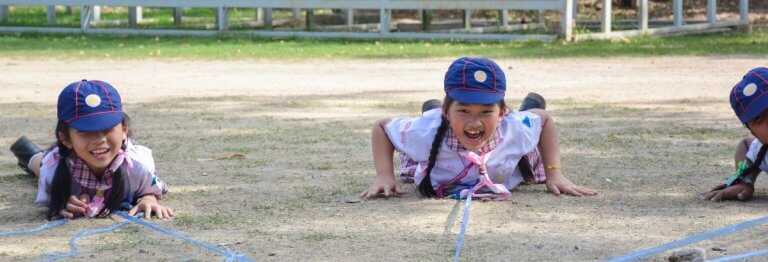
Getting limbless veterans to share stories about how their legs and arms were lost isn’t your typical day at school. But as countries like Singapore and the UK push for more teaching of character, or social and emotional learning, such unconventional class time looks set to become a regular occurrence.
The Guardian recently featured Making Generation R, a project where injured veterans inspire pupils through stories of how they overcome difficulty in their lives. In addition to sharing their stories and holding Q&A sessions (and all for free!), veterans also lead motivational workshops where students can explore what resilience is and how they can become resilient.
Research supports the positive outcomes of teaching kids thing like perseverance and self-control, alongside academic learning. Also known as “non-cognitive skills” or “essential life skills”, these are a set of attitudes, skills and behaviours that can bring success to pupils in school and beyond. By training students how to respond to setbacks, build relationships, manage emotions and cope with difficult situations, they have been found to improve health, academics and happiness in life.
But not everyone is on board with this. Some have accused the UK government of “nannying” and to leave such teaching to parents. Nick Gibb, UK Schools Minister, described such teaching as “ghastly,” back in 2007, adding that “Schools have really got to focus on the core subjects of academic education and teaching children how to learn.”
And while there are benefits to teaching these life skills, it’s been hard to settle on one method that fits all. Curricula have been accused of pushing a moral agenda and there are arguments over which traits should be focused on (grit vs open-mindedness).
Kevan Collins, Chief Executive of the the Educational Endowment Foundation in the UK, told Quartz in 2014: ”It’s clear that teaching character and essential skills in schools has the potential to have a real impact on outcomes for pupils, particularly those from disadvantaged homes.”
But he admits, “we don’t know enough about the best ways to teach these attributes.”
Peter Leidig, who runs an extensive PHSE (Personal, Social and Health Education) programme at Blenheim School in Epsom, Surrey, said: “Of course teaching resilience is very difficult.
“But there is a dearth of good resources in this area, and giving young people an experience unlike their own can be powerful,” he continued, adding that in a time where mental health concerns affect one in eight young people, giving real-life examples of resilience like the veterans’ can be powerful.
Lessons from Blesma’s limbless veterans are helping school pupils confront their own personal challenges. Read how here: https://t.co/nPhPTNTvua @GuardianEdu @schooltruth @thedriveproj pic.twitter.com/L79dKJJ8PE
— Blesma (@Blesma) January 8, 2019
This perhaps explains the UK’s Education Secretary’s recent launch of an “activity passport”. Pupils are to download a document that allows them to tick off 140 prescribed activities once completed, including climbing trees, making a treasure map and dressing up like a pirate, as part of a push to boost resilience in kids.
Beyond public schools, in programmes like the International Baccalaureate (IB), social and emotional learning is considered to play a “key role” in the curriculum. Schools with the IB programme, known for its holistic view of education, are encouraged to focus on such teaching in classrooms.
A study conducted by Flinders University suggests that IB Middle Years Programme (MYP) schools make “concerted efforts” to “build the empathy, global self-concept, peer relationships, school relationships, self-reflection, resilience and the confidence” in students. Studying the well-being of IB MYP students, ages 11-16 in Australia, it found that only a small portion of students displayed poor levels of well-being.
When asked to explain how their schools guide them towards success, students generally acknowledged that there was an effort to help them achieve goals identified as important to them, including those beyond academic achievement.
Other studies have also suggested that the IB Learner Profile – which represents 10 attributes valued by IB World Schools: Inquirers, Knowledgeable, Thinkers, Communicators, Principled, Open-minded, Caring, Risk-takers, Balanced, Reflective – helps students attain social and emotional skills. This includes forming a focused mind, greater awareness of self and others, an ability to suspend judgement, non-impulsive deliberate decision-making and emotional confidence.
Liked this? Then you’ll love…
10 memes everyone taking the International Baccalaureate will identify with
For a holistic education, should you take the A-Level or International Baccalaureate?







